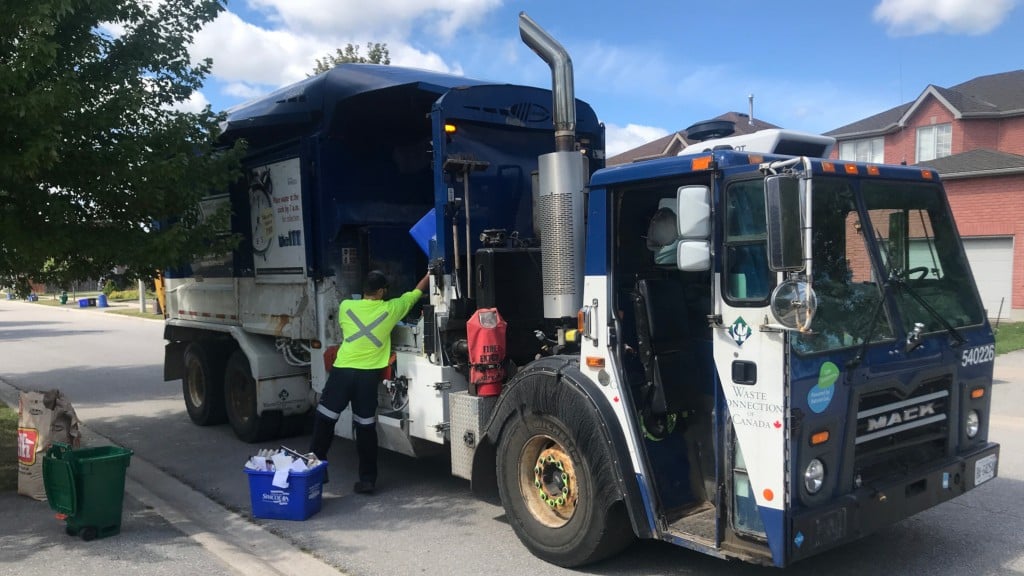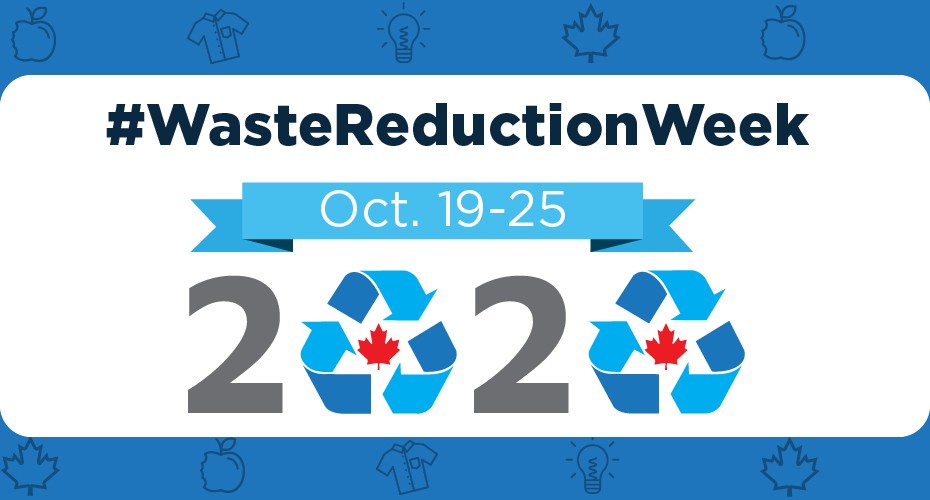Ontario to use EPR to advance their Blue Box curbside collection program
New framework to bring recycling to more communities and expand list of recyclables

Following extensive consultations, the Ontario government is advancing provincial, curbside residential blue box recycling by expanding service to more communities, standardizing the list of materials that can be recycled across the province and saving municipalities money by making producers of products and packaging fully responsible for the cost and operation of the program.
On Thursday, June 3, 2021 the Ontario government filed producer responsibility regulation for Blue Box materials under the Resource Recovery and Circular Economy Act, 2016 (RRCEA). Under the new regulations, existing municipal, local services board and First Nation blue box services will be transitioned to producer responsibility between July 1, 2023 and December 31, 2025, and requires producers to be responsible for a consistent set of blue box materials and eligible sources beginning on January 1, 2026.
According to Jo-Anne St.Godard, executive director of Ontario's Circular Innovation Council (Recycling Council of Ontario) "Extended producer responsibility is designed to assign economic and environmental accountability to producers, and we support its application to Ontario's Blue Box program. For far too long municipalities and taxpayers have had to share the burden of cost on a collection and recycling system. By transferring cost fully to producers we hope to see innovation in packaging that is designed for efficient collection and recovery at end of life.
"Producers and municipalities have been advocating for an enhanced, producer-led Blue Box program for over a decade and I'm proud that our government has finalized these improvements," said Jeff Yurek, Minister of the Environment, Conservation and Parks. "Our goal is to ensure our program remains convenient, affordable and right for communities. That's why we are creating a stronger and more effective blue box service that will have some of the highest waste diversion targets in North America to promote greater innovations in recycling technologies and increased use of recycled materials."
The changes to the program will transition the costs of the Blue Box program away from municipal taxpayers by making the producers of products and packaging fully responsible for managing the life-cycle of their products, resulting in an estimated savings of $156 million annually for municipalities.
"Our government is supporting the people of Ontario by moving accountability for recycling costs away from the taxpayer," said Steve Clark, Minister of Municipal Affairs and Housing. "We are proud to support these changes that will help divert waste and protect our environment while putting money back in the pockets of people who live and work in this province."
According to Mike Chopowick, OWMA(Ontario Waste Management Association) CEO, "The Ontario Waste Management Association (OWMA) supports the Ontario government's commitment to strengthen the Blue Box program and set some of the highest waste diversion targets in North America."
"This program will better allow producers to effectively and accountably promote waste diversion, better manage the handling of 800,000 tonnes of products and packaging at the end-of-life stage and reduce the burden on municipal taxpayers. These changes are not only good for the environment, they are good for the economy, and will encourage investment."
"While we applaud government for addressing the Blue Box program and residential printed paper and packaging, the bulk of waste generated in these streams is by the Industrial, Commercial, and Institutional (IC&I) sector," commented St. Godard, "To truly support and advance the circular economy and ensure that resources are kept in circulation in closed-loop system we need to address all sources of waste - residential and commercial - with comprehensive data reporting to ensure transparency and accountability."
Making recycling easier in Ontario
According to the Ontario Ministry of Environment, Conservation and Parks, the enhanced Blue Box program is meant to make recycling easier for Ontarians by expanding collection to all communities outside the Far North by 2026, standardizing what can be recycled across Ontario, and allowing for the acceptance of common single-use and packaging-like products such as paper and plastic cups, foils, trays, bags and boxes sold for home use.
The new system will also collect single-use items that are distributed or sold to consume food and beverage products, like stir sticks, straws, cutlery and plates and expand services to more facilities such as apartment buildings, municipally run or non-profit long-term care homes and retirement homes, and schools. Under the new scheme, the province is also expanding collection to more parks, playgrounds, and transit stations, more than tripling the number of public space recycling bins funded under the current program so there are more opportunities to recycle at home and on the go.
He says combining 253 local programs into a single provincial collection system managed by producers will improve recycling operations across the province, encouraging producers to find efficiencies that will make recycling simpler and easier for residents, while also driving innovation in recycling practices and technologies by rewarding producers who make their products easier to recycle and can derive more value from waste - fueling job creation and attracting investment right here in Ontario.
The transition to the enhanced Blue Box program will be staggered from 2023 to 2025 to ensure a smooth transition for municipalities and producers, so there is no interruption to service for residents. Some of the first municipalities scheduled to adopt the new producer model include Kenora, London, Toronto and the Town of Hawkesbury.
Patrick Dovigi, founder and CEO of Ontario-based GFL, also commented, "GFL Environmental Inc. commends the Ford Government on its initiative to seize the recycling opportunity in Ontario. Our signature bright green fleet of trucks and five recycling facilities located throughout the province are able to support a significant portion of Ontario's current residential recycling needs. Together with industry, we are proud to build on the successes of Ontario's municipalities and step up to the plate to ensure that when Ontario families set their blue box at the curb, they can be confident that GFL remains committed to advancing the province's goals."
See the full details of the new regulation at this link: https://www.ontario.ca/laws/re...
Quick Facts about Ontario's enhanced blue box program
-Ontario's overall waste diversion rate has stalled and about 70 per cent of our waste materials continue to end up in landfills.
-The transition of municipalities to the new Blue Box program will be staggered to ensure stable transition for communities and balance costs and facilitate economies of scale for producers. The rollout schedule can be found here.
-Ontarians will not see any disruption in their blue box services. Communities already participating in curbside blue box collection will continue to receive the service as they transition to the new producer-run model, including those with populations under 5,000.
-This new framework ensures programs already having a positive impact on the environment, like the Beer Store's deposit return program, can continue under the new producer responsibility model.
Company info
170 Attwell Drive
Suite 580
Etobicoke, ON
CA, M9W 5Z5
Website:
owma.org
Phone number:
416-674-1542





